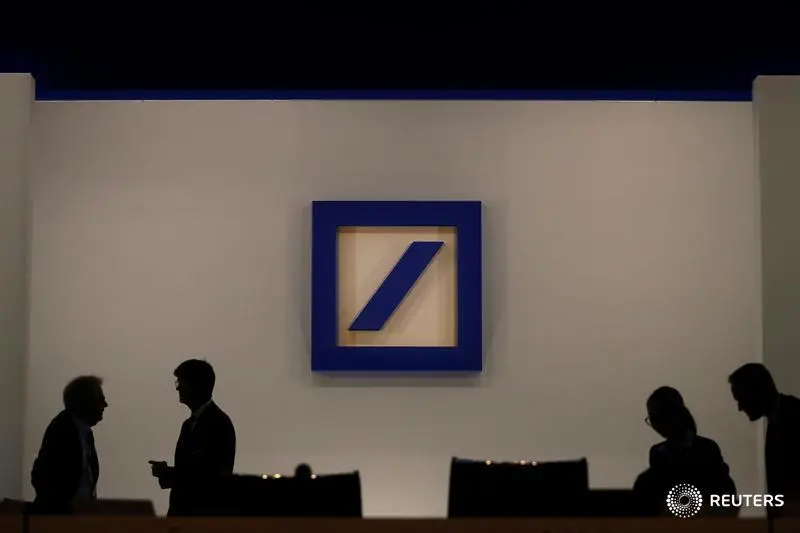PHOTO
LONDON - Equity capital markets bankers are nervously watching Deutsche Bank’s investment banking experiment. The lender’s enforced decision to shut down its cash equities business raises the question of whether an army of salespeople and traders is needed to back up stock offerings. A leaner but meaner Deutsche could show massive equities operations are more a nice-to-have than a necessity.
Deutsche boss Christian Sewing can’t be faulted for ambition. He plans to dramatically cut back the business of trading and recommending stocks in a bid to cut costs, but continue underwriting rights issues and arranging public offerings for clients. The latter part of the business made up just 3% of Deutsche’s overall investment banking revenue last year, but is more lucrative, and critical for winning business on large merger-and-acquisition deals.
Sewing is cutting cash equities at a time when it’s already become less profitable. Global revenue has fallen from $12.1 billion in 2013 to $9.2 billion in 2018, according to Coalition data, as the rise of electronic trading has reduced the profit that banks make on trades. The European Union’s Markets in Financial Instruments Directive has aggravated the issue by forcing banks to charge separately for research rather than recouping the cost through high trading fees. Instead, investors are slashing the number of brokers they receive analysis from.
The risk is that retrenchment damages Deutsche’s equity capital markets business. Having fewer traders and salespeople might make it harder to get the best price for initial public offerings or rights issues. Yet the growth of high-frequency trading may diminish the need for human intelligence. And, increasingly, investors are more likely to do their own research for IPOs, or rely on just one sellside report.
If Sewing’s plan works, it will help show that smaller players can compete against bulge-bracket Goliaths. True, the league tables are still dominated by large global banks with trading operations, in particular Wall Street groups such as JPMorgan and Morgan Stanley. Yet the Davids are gaining ground. Numis, for example, has seen its market share in equity capital markets in Europe, Middle East and Africa roughly double since 2015, to 1.9% so far this year, according to Refinitiv data. It even beats Sewing’s bank, which ranks 14th by market share. A slimmed-down Deutsche will struggle to ever match, say a Goldman Sachs, but may still end up inspiring smaller rivals.
CONTEXT NEWS
- Deutsche Bank on July 7 announced a plan to boost flagging profitability by cutting 18,000 jobs.
- The bank said it will scrap its global cash equities trading business and cut its fixed income operations. It will also create a new unit to wind down unwanted assets, amounting to 74 billion euros of risk-weighted assets. Deutsche plans to continue its equity capital markets business in Europe.
Deutsche Bank shares were up 2.4% to 6.66 euros at 0821 GMT on July 10.
(Editing by Neil Hay and Bob Cervi)
© Reuters News 2019





















